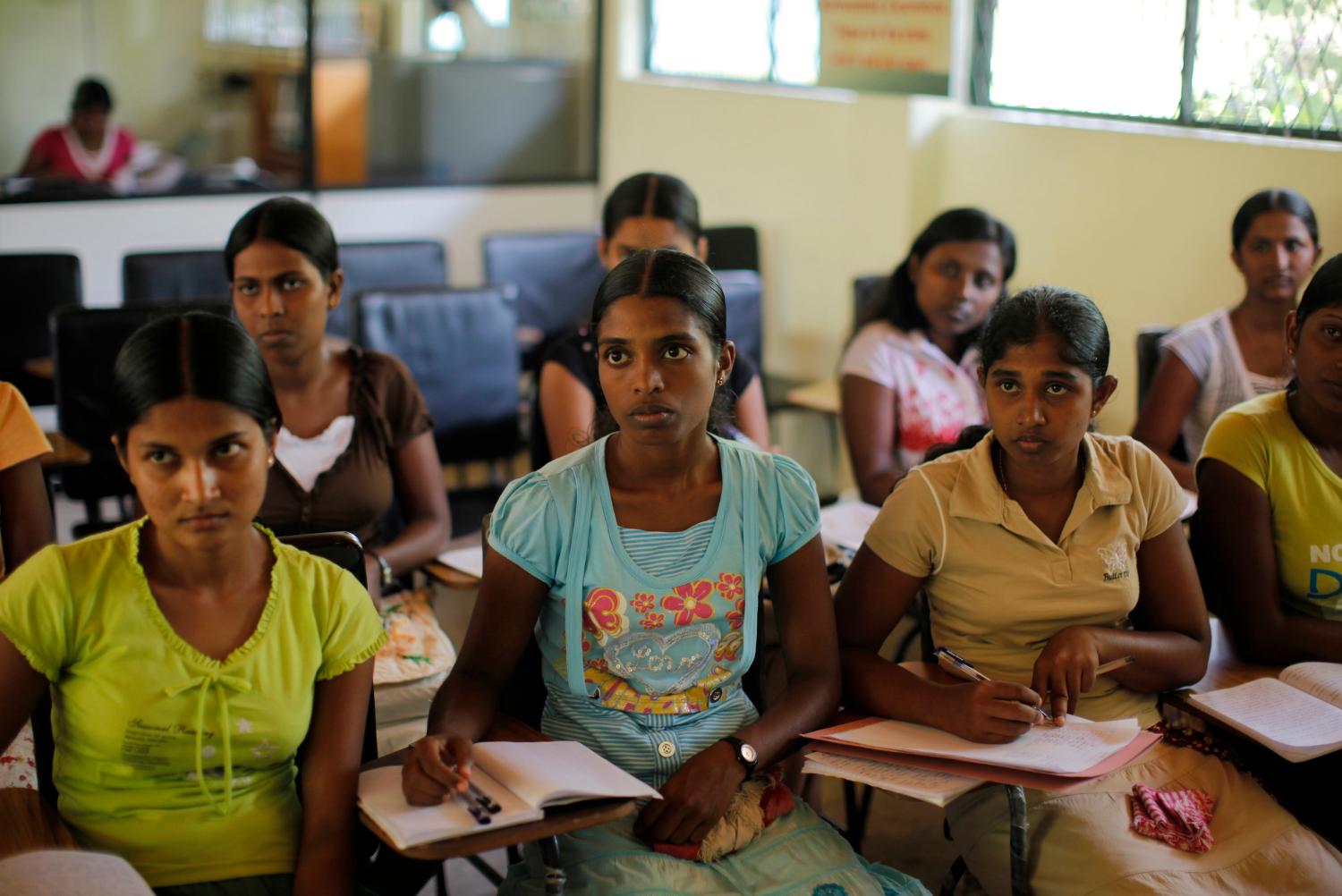The last two decades have seen a phenomenal rise in girls’ education and a concomitant decline or stagnation in labor market outcomes for women, especially in female labor force participation in central and southeastern Europe, East Asia, Southeast Asia, and South Asia.
This paper focuses on Sri Lanka, a country with a long record of gender equality in education enrollment and high female completion rates, which has also been characterized by low and stagnant female labor force participation. It remains a puzzle why Sri Lanka has been unable to translate its high girls’ education gains into female labor force participation. This paper examines whether clues to the answer lie in (1) gender differences in skill acquisition, which have implications for education policy; (2) differences in the way the labor market values identical skills in men and women, with implications for labor market policy interventions, or (3) in the gender division of labor in the household, which has implications for family-friendly and social policies. The paper analyzes the 2012 World Bank STEP Skills Measurement survey, a rich data set that includes self-reported measures of cognitive and non-cognitive skills for all individuals of working age, to address these questions. The results indicate that although women have higher measured cognitive skills than men and the same level of skill as men in the non-cognitive ones that the market values—such as being agreeable and good at decision-making and risk-taking—the market treats men and women with the same skills differently. This discrepancy is intensified among labor market entrants— men and women aged 20-29 years. While there remains scope for the acquisition of skills rewarded in the labor market, it is clear that skill acquisition alone will not eliminate gender gaps in earnings. Further research will be needed to explore whether the differential returns are owing to occupational segregation by gender, or whether employers treat the same skills differently depending on whether they are displayed by men or women. The experimental literature in Europe and the U.S. (reviewed in the paper) suggests that affirmative action-type policies may be justified in both cases.
Results also find that higher returns to cognitive and non-cognitive skills are associated with a greater number of years of formal schooling. For boys and girls to take advantage of this association, they may need to stay in school longer than the compulsory requirement of upper secondary school completion. Sri Lanka’s policy initiatives to extend compulsory schooling to senior secondary level are supported by this evidence. The nuanced nature of these results implies that any education policy approach to improving skill acquisition with a view to improving labor market outcomes must seriously consider gender in its design. Surprisingly, technical and vocational education (TVET), training, and apprenticeships have no independent effect over and above the effect of schooling, suggesting that their role in enhancing earnings may be less than is typically assumed.
The results also indicate that for women, being married and having young children reduces the probability of paid employment significantly. Being married increases the probability of male participation in paid work and having young children has no effect at all on whether men engage in paid work. These results suggest inertia in cultural norms regarding the division of household work.
Evidence from Europe and the U.S. suggests that affirmative action-type policies and family-friendly policies that increase the availability and reduce the cost of child care have succeeded in increasing female labor force participation. In the context of these results, this would be an important policy avenue for further exploration for Sri Lanka.
The results also indicate that average returns to women from cognitive skills would increase by 75 percent if women who are inactive, in unpaid work, or unemployed were to engage in paid work. This finding implies that women who are not in paid employment have higher levels of cognitive skills that are rewarded by the market than those in paid employment, suggesting a loss to the economy in productive human resources. It underlines the necessity to consider the policy options described above in order to help bring more women into the labor force and promote fairer treatment when there, thereby creating favorable conditions for future generations of women to enter the labor market.






